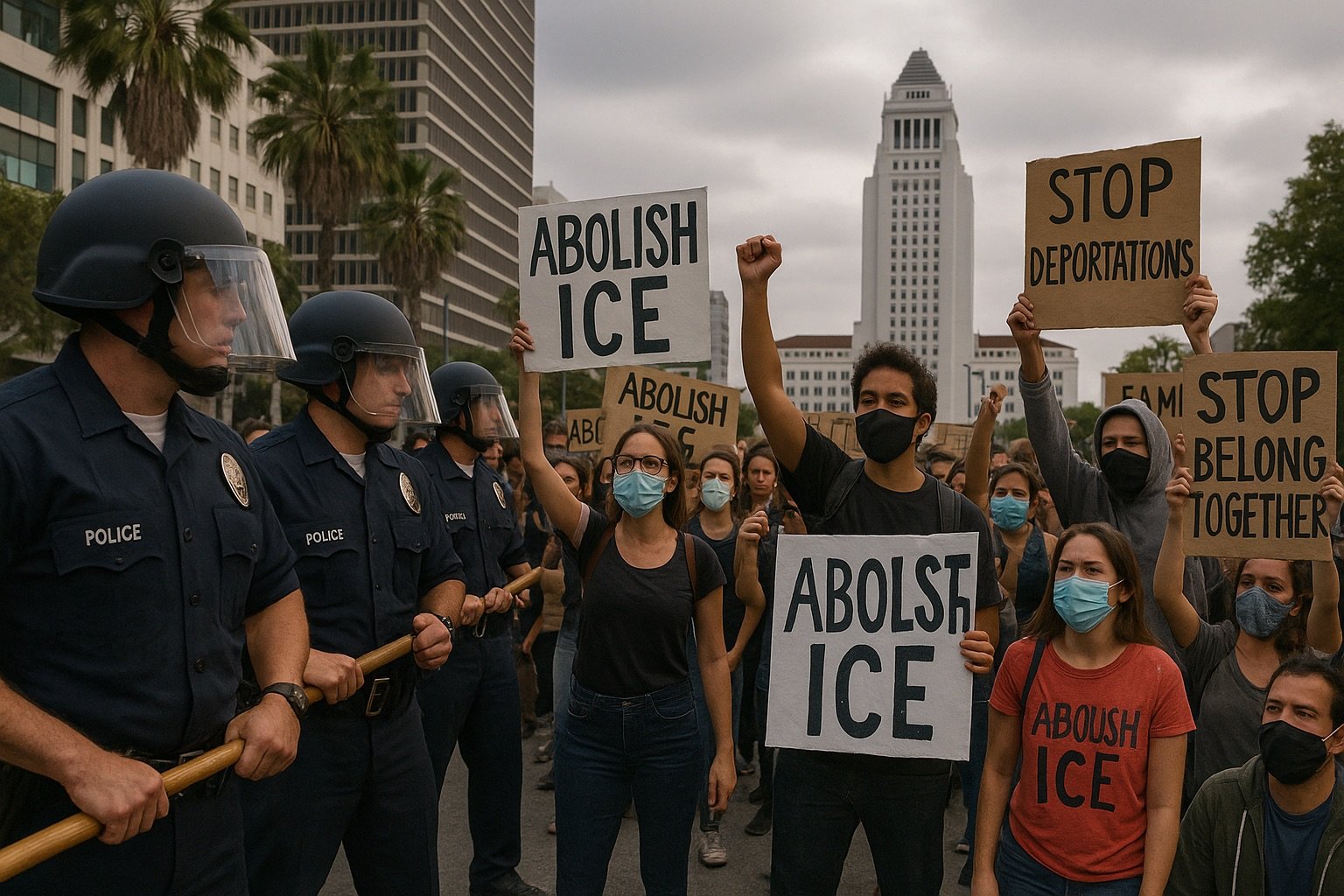Trump’s Response to Los Angeles is as Predictable as it is Outrageous
At the heart of all this is a simple truth: Trump is a bully. He has always relied on intimidation and division to get his way, and the events in Los Angeles are just the latest example. By using racist rhetoric to describe the protesters and by deploying federal troops to suppress their voices, he is not protecting the country—he is undermining it. He is creating a false narrative that equates criticism with chaos, and dissent with danger. But he is the real danger.
Los Angeles has become the epicenter of a new wave of protests against the Trump administration’s aggressive immigration policies and the continued presence of Immigration and Customs Enforcement (ICE) in local communities. What began as peaceful demonstrations—led by Black and Brown activists, immigrant rights groups, and concerned citizens—quickly escalated into a national flashpoint, not because of the protesters’ actions, but because of President Trump’s heavy-handed and deeply troubling response.
Instead of listening to the legitimate grievances of the people, Trump chose to double down on the same tactics that have defined his political career: criminalizing dissent, stoking racial divisions, and undermining the very principles of democracy. The protests in LA are not just about ICE raids or the fear that families would be torn apart in the dead of night. They are about the right to speak out against injustice, the right to demand accountability from those in power, and the right to exist without fear in one’s own community.
But Trump’s response was as predictable as it was outrageous. Within hours of the first major protest, he took to social media, labeling the demonstrators as “thugs” and “criminals,” echoing the same racist rhetoric he has used time and again to delegitimize Black and Brown voices. He claimed that the protests were not about justice, but about “anarchy” and “lawlessness,” painting a false narrative that conveniently ignored the peaceful nature of the vast majority of those in the streets.
What made this moment even more alarming was Trump’s blatant disregard for the rule of law and the balance of power between the federal government and the states. Without so much as a phone call to California’s governor, Trump ordered the deployment of National Guard units and federal troops into Los Angeles. This was not a request for assistance, nor was it a coordinated effort with local officials. It was a unilateral move—a power grab that trampled on the rights of Californians to govern themselves and set their own priorities.
By sending in federal forces without the governor’s approval, Trump usurped the authority of California’s elected leaders and sent a chilling message to anyone who dared to speak out: dissent will be met with force. This is not just a violation of state sovereignty; it is a direct attack on the very idea of democracy. The Constitution is clear: the federal government cannot simply override the will of the states whenever it pleases. Yet Trump, in his quest to silence opposition and project strength, treated the law as little more than an inconvenience.
The consequences were immediate and severe. Peaceful protesters were met with tear gas, rubber bullets, and mass arrests. Community leaders were targeted and vilified in the press. The city was plunged into a state of fear and uncertainty, not because of the actions of its residents, but because of the reckless decisions made in Washington, D.C.
At the heart of all this is a simple truth: Trump is a bully. He has always relied on intimidation and division to get his way, and the events in Los Angeles are just the latest example. By using racist rhetoric to describe the protesters and by deploying federal troops to suppress their voices, he is not protecting the country—he is undermining it. He is creating a false narrative that equates criticism with chaos, and dissent with danger. But he is the real danger.
This is not leadership. This is not what democracy looks like. When the president of the United States uses the power of his office to silence those who disagree with him—especially when those voices come from communities that have been historically marginalized and oppressed—he is not defending the nation. He is betraying its most fundamental values.
The 2025 LA protests should be remembered not just for the courage of those who took to the streets, but for the way in which their voices were met with repression and contempt from the highest levels of government. It is a stark reminder that the fight for justice is far from over, and that the greatest threat to democracy often comes not from the people, but from those who claim to lead them.
In the end, history will judge Trump’s actions for what they are: an attempt to criminalize Black and Brown voices, to usurp the power of the states, and to bully a nation into silence. But the people of Los Angeles—and all those who stand with them—have shown that they will not be intimidated. Their voices matter, and no amount of force or false narrative can erase the truth they speak.

